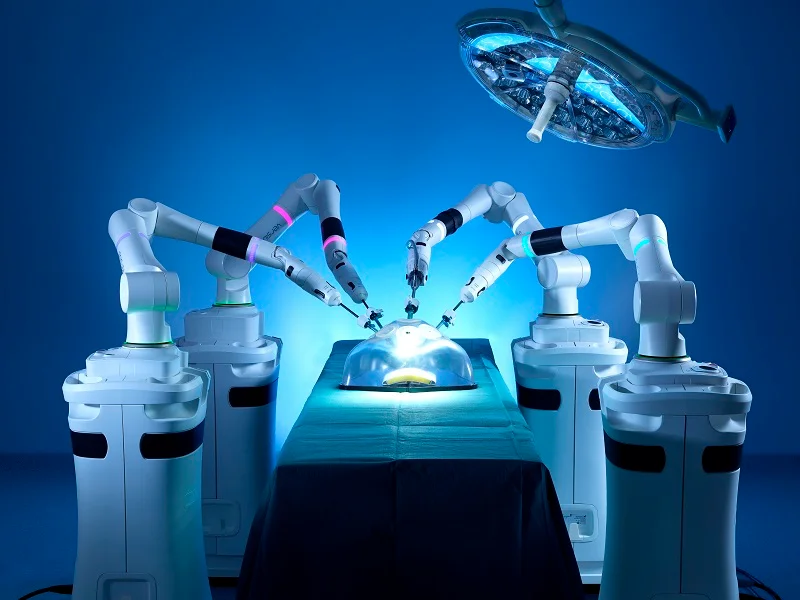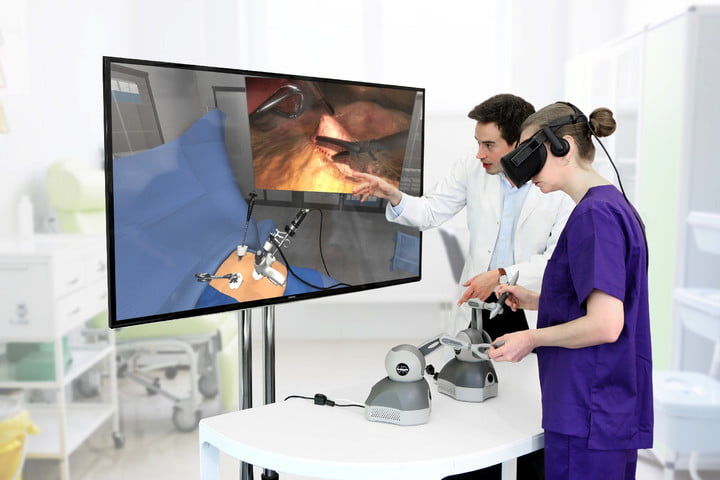The future of medicine is bright, with medical technology racing ahead at an unprecedented pace. These advancements offer the promise of longer, healthier lives and a completely transformed healthcare landscape.
Among the trailblazers in this new frontier are exceptional medical devices, each promising to redefine how we approach patient care. As we explore this exciting terrain, let's also note how vital tech platforms and players have become in rapidly disseminating these revolutionary devices.
From your wrist to your finger, wearable health monitors track a myriad of physiological metrics. Whether you're monitoring heart rates or sleep patterns, these devices furnish a real-time, in-depth look at your well-being.
As the technology evolves, we can expect these devices to detect even subtler health changes, potentially diagnosing conditions before symptoms manifest.
In this rapidly evolving landscape, AcuityMD emerges as a linchpin. They forge vital connections between medical device sales representatives and healthcare professionals in need of advanced instruments.
Through its expansive platform, AcuityMD turbocharges the distribution of cutting-edge medical technologies, making them accessible to a broader range of healthcare providers. As a result, the latest advancements hit the market quicker than ever before.
The transformative power of telemedicine platforms extends beyond mere convenience. Specialized software enables secure video conferencing, prescription renewals, and even remote patient monitoring. These functionalities drastically reduce hospital readmissions and make follow-up care more efficient.
Telemedicine also holds the promise of democratizing specialist consultation. Rural communities without immediate access to specialized care can now virtually consult experts in cardiology, psychiatry, or oncology without the barriers of geography.

Robotic surgery systems have added a layer of finesse to surgical procedures. Advanced versions incorporate 3D imaging and haptic feedback, which allows surgeons to feel the resistance of tissues they're operating on, albeit remotely.
This combination of features significantly enhances the surgeon's situational awareness, resulting in more precise and less invasive procedures. As these systems grow more sophisticated, they may soon be capable of conducting procedures that are currently too complex or delicate for human hands alone.
Advances in 3D bioprinting extend well beyond the notion of printing organs for transplantation. This technology can create specific tissue types for more effective drug testing, reducing the reliance on animal testing and speeding up pharmaceutical development. 3D bioprinters could also potentially produce skin grafts for burn victims or even prosthetic limbs with integrated organic material.
If you’re looking to the future, 3D bioprinting technology might be a cornerstone in regenerative medicine, focusing on the creation of functional tissues to replace or repair damaged biological systems.
Portable ultrasound devices have found applications in an array of medical fields, from obstetrics to cardiology. These compact, handheld devices enable healthcare providers to make rapid assessments in critical situations such as trauma incidents.
They're not confined to the four walls of a hospital, which makes them especially valuable. Field doctors in war zones or during disaster relief operations can deploy portable ultrasound devices to triage patients efficiently. As battery technology and imaging algorithms improve, these devices will become even more versatile and accurate.
Smart inhalers are rapidly becoming an essential tool for respiratory condition management. These intelligent devices don’t just track medication use; they can analyze environmental factors like air quality and pollen levels, which are known to exacerbate conditions like asthma.
These data points are collated and analyzed, allowing healthcare providers to tailor more personalized treatment strategies for patients. Over time, this data-driven approach could contribute significantly to preventive medicine within respiratory care.
The potential of AI-based diagnostic tools goes beyond improving the accuracy of diagnoses. These systems can comb through vast medical databases in seconds, making connections between symptoms and conditions that might not be immediately apparent to human doctors.
Advanced machine learning models can even predict patient outcomes based on historical data, thereby informing treatment choices before the condition progresses. These tools could be instrumental in the timely identification of infectious disease outbreaks, offering healthcare systems the ability to respond more proactively.

Virtual reality simulators in surgical training have achieved a new level of realism. They can replicate complex surgical scenarios that vary in difficulty, providing a graded learning curve for medical students. This kind of targeted training allows for deliberate practice on specific surgical tasks, leading to a quicker mastery of necessary skills.
Beyond just technical prowess, VR simulators also offer training modules on teamwork and communication — key elements in any surgical setting, where even the smallest misunderstanding can have dire consequences.
Managing diabetes becomes less cumbersome with continuous glucose monitors. These devices offer a constant stream of data, avoiding the need for frequent, painful finger-pricking. Future iterations could be even more seamless, possibly providing real-time alerts to medical providers in critical situations.
The parade of innovation in medical technology shows no signs of slowing down. Each device on this list not only reshapes healthcare but also expands the realm of what’s medically possible.
Improved technology and convenient platforms within the medical industry act as catalysts, accelerating the shift towards a future festooned with technological marvels. Indeed, the days ahead hold nothing less than a healthcare revolution, and each of us stands to benefit in ways we’re just beginning to understand.
Be the first to post comment!